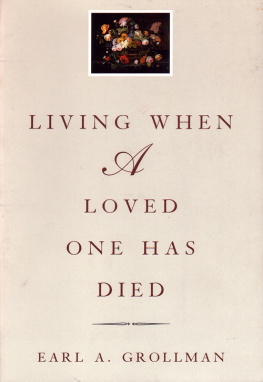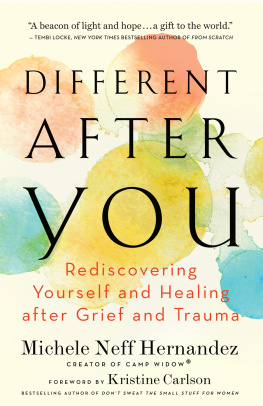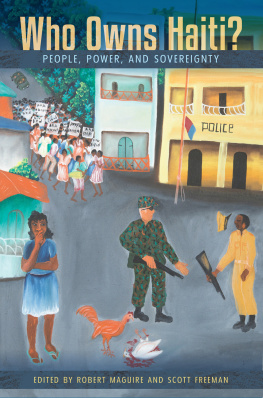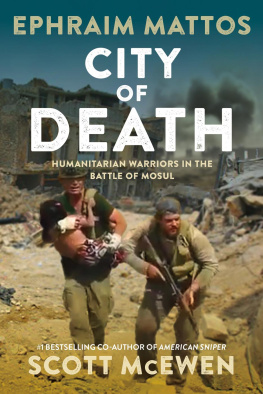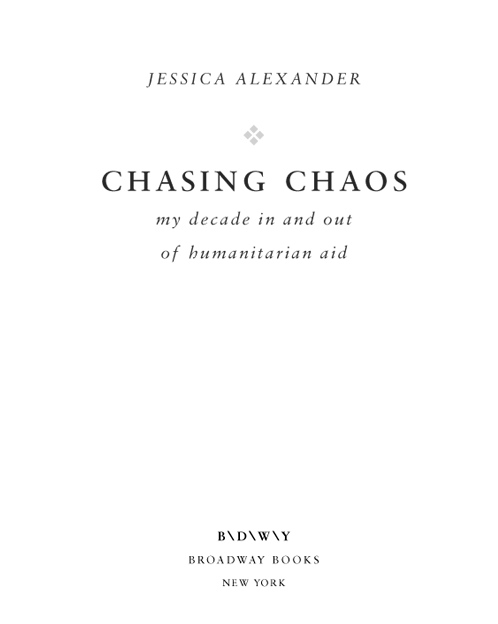More Praise for Chasing Chaos
A fresh, very readable, highly personal account of the trials and tribulations of a young aid worker as she confronts the daily realitiesthe good, the bad, and the very uncomfortableof life dealing with some of the most important humanitarian challenges of the last decade.
Ross Mountain, Former United Nations Deputy
Special Representative of the Secretary General and
Humanitarian Coordinator
Not only is Jessica Alexander a wonderful writerher clear, evocative prose transported me into refugee camps in Darfur, war trials in Sierra Leone, and post-earthquake Haitibut she is honest about the complexity of doing good, without being defeatist. Funny, touching, and impossible to put down, this book should be required reading for anyone contemplating a career in aid, and for all of us who wonder how we can make a useful contribution to a better world, wherever we are.
Marianne Elliott, author of Zen Under Fire:
How I Found Peace in the Midst of War
Youll start Chasing Chaos because you are interested in humanitarian aid. Youll finish because of Jessica Alexanders irresistible storytelling: her honesty, her humanity, her wackadoodle colleagues, her dad. I loved it.
Kenneth Cain, author of Emergency Sex (and Other
Desperate Measures): True Stories from a War Zone
A no-holds-barred description of what it is like to travel to world disaster sites and engage in the complex, challenging, nitty-gritty work of making a difference across lines of culture, class, age, gender, and perspective. In telling the story of her decade as a young and passionate humanitarian aid worker, Jessica Alexander also manages to tell us the best and the worst of what this work is like and to speculate on the aid establishmenthow it has changed, where it works, and what its limits are. A must read for anyone with global interestsand that should be all of us.
Ruth Messinger, president, American Jewish World Service
Chasing Chaos examines the lives that aid workers lead and the work [that] aid workers do with honesty, clarity, and warmth. While the book is peppered with hilarious anecdotesit is also salted with tears. Honest, genuine, heartfelt tears. This life and this work that aid and development workers embark upon so often oscillates wildly between stomach-bursting laughter and shoulder-seizing weepingChasing Chaos captures these oscillations, and the doldrums in between the ends of the spectrum, perfectly.
Casey Kuhlman, New York Times bestselling author of Shooter
The compelling quality of Chasing Chaos is Alexanders honesty, sharp observations, and conversational prose. With humor and insight, she shares the intimate details of her everyday life. Even if youre a seasoned traveler, this entry into the world of humanitarian aid organizationsthe good, the bad, and the frustratingis fascinating.
Rita Golden Gelman, author of Tales of a Female Nomad
A hardened idealists challenging look at the contradictions, complications, and enduring importance of humanitarian aid.
Robert Calderisi, author of The Trouble with Africa: Why Foreign Aid Isnt Working
In Chasing Chaos, Alexander takes us to a place where few outsiders can go, cracking open the rarefied world of humanitarianism to bare its contradictionsand her ownwith boldness and humor. The result is an immensely valuable field guide to the mind of that uniquely powerful and vulnerable of beasts: the international aid worker.
Jonathan M. Katz, author of The Big Truck That Went By: How the World Came to Save Haiti and Left Behind a Disaster
Copyright 2013 by Jessica Alexander
All rights reserved.
Published in the United States by Broadway Books, an imprint of the Crown Publishing Group, a division of Random House LLC., New York, a Penguin Random House Company.
www.crownpublishing.com
BROADWAY BOOKS and its logo, B \ D \ W \ Y are trademarks of Random House LLC.
Library of Congress Cataloging-in-Publication Data
Alexander, Jessica.
Chasing chaos : my decade in and out of humanitarian aid /
Jessica Alexander. First edition.
pages cm
1. Humanitarian assistanceSudanDarfur. 2. SudanHistoryDarfur Conflict, 2003- I. Title.
HV555.S73A44 2013
361.25092dc23
[B] 2013008182
ISBN 978-0-7704-3691-9
eBook ISBN: 978-0-7704-3692-6
Maps by David Lindroth, Inc.
Cover design by Maayan Pearl
Cover photographs by Kurt Drubbel (desert); Ben Walsh/Corbis (car)
v3.1
TO DAD
and
TO MOM , who is with me wherever I go
CONTENTS
All Skin and Grief
NORTH DARFUR , 2005
Hot Pockets and Sunny D
NEW YORK CITY , 2000
People Died This Way
RWANDA , 2003
Does Everyone You Work With Have Dreadlocks?
NEW YORK CITY , 2003
Zulu X-Ray India 9
WEST DARFUR , 2005
Center for Survivors of Torture Fancy Dress Night
NORTH DARFUR , 2005
More Money, More Problems
SRI LANKA AND INDONESIA , 2005
I Make a Living Off the Suffering of Strangers
NEW YORK CITY , 2006
War Don Don, Peace Don Cam
SIERRA LEONE , 20062007
Saving Lives One Keystroke at a Time
NEW YORK CITY , 20082009
Im Headed to Haiti, Where Are You Going?
HAITI , 2010
Epilogue
2013
All Skin and Grief
NORTH DARFUR, 2005
I awoke as I did every morning. The call to prayer erupted at 5:30 a.m. and was so loud I could have sworn the muezzin set his amplifier right next to my pillow. But the scratchy voice that shrilled through the old speaker came from the roof of the adjacent mosque.
Someone make him stop. Please, just make it stop.
When the muezzin paused to take a breath, a chorus of chickens, goats, and a baby crying in a house nearby filled the momentary hush. I peeled the mildewed towel from my facethe one I had drenched with water and placed on my forehead before bed. It was the only way I could fall asleep in the smothering Darfur heat. Every evening Id dunk my pajamas in water and lie on the foam mattress, eyes shut tightly, reveling in the cool wetness clinging to my skin, hoping I would fall asleep before it evaporated into the dry night. But that almost never happened.
As the muezzin continued, I got out of bed listlessly; I had to get to the camp early that day. Close to one hundred and twenty thousand displaced people lived in camps around the city of El Fasher, the capital of North Darfur; twenty-four thousand of them lived in the camp where I worked, Al Salam. Families would be sitting outside the registration tent this morning, already lined up and waiting for the camp processing to resume. Since the other two campsAbu Shouk and Zam Zamwere at full capacity, we had to make room for the new arrivals. We registered, screened, and distributed food to the weary families as quickly as possible, but each day an endless flow of colored specks in the sandy distance moved closer to the camp: men and women carrying babies in their arms and bundles on their heads, donkeys trudging slowly by their side. It was a war. People kept coming.
I went to the small bathroom in our compound, thinking that maybe, miraculously, the water would work. I turned the small faucet, hoping for a trickle, but it coughed and sputtered. My calves and armpits hadnt seen a razor for weeks. My hair hung in oily clumps around my face and smelled like dirty dishwater. I pressed the lever to flush the toilet, but it went limp beneath my fingers. The day before wed accidentally left the lid open and bugs had swarmed around the seat. Today the lid was down but it still smelled like rotting shit.











